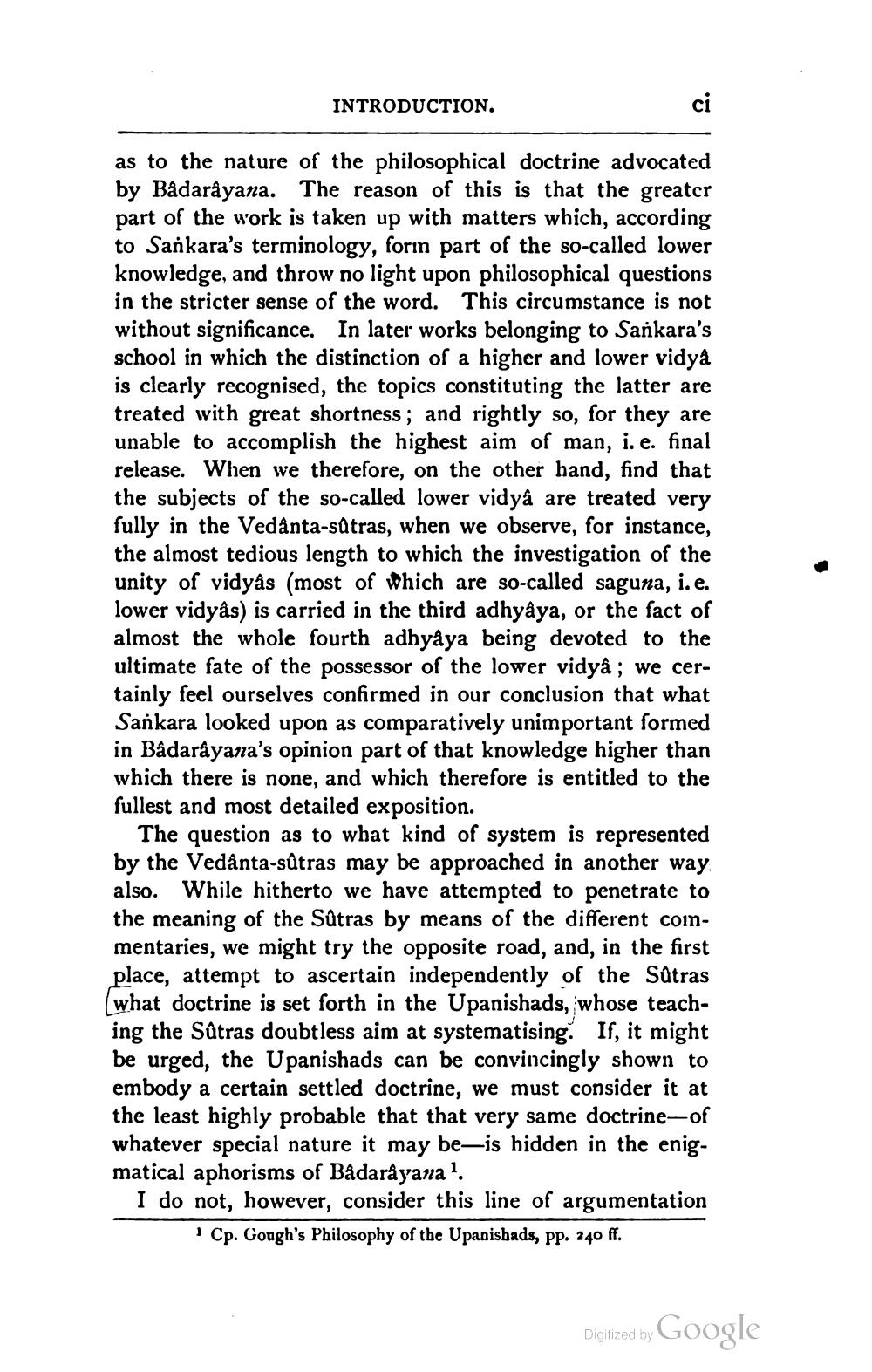________________
INTRODUCTION.
as to the nature of the philosophical doctrine advocated by Bådarayana. The reason of this is that the greater part of the work is taken up with matters which, according to Sankara's terminology, forın part of the so-called lower knowledge, and throw no light upon philosophical questions in the stricter sense of the word. This circumstance is not without significance. In later works belonging to Sankara's school in which the distinction of a higher and lower vidya is clearly recognised, the topics constituting the latter are treated with great shortness; and rightly so, for they are unable to accomplish the highest aim of man, i. e. final release. When we therefore, on the other hand, find that the subjects of the so-called lower vidya are treated very fully in the Vedanta-sútras, when we observe, for instance, the almost tedious length to which the investigation of the unity of vidyâs (most of which are so-called saguna, i.e. lower vidyas) is carried in the third adhyâya, or the fact of almost the whole fourth adhyâya being devoted to the ultimate fate of the possessor of the lower vidyâ; we certainly feel ourselves confirmed in our conclusion that what Sankara looked upon as comparatively unimportant formed in Bâdarayana's opinion part of that knowledge higher than which there is none, and which therefore is entitled to the fullest and most detailed exposition.
The question as to what kind of system is represented by the Vedanta-sútras may be approached in another way, also. While hitherto we have attempted to penetrate to the meaning of the Sūtras by means of the different commentaries, we might try the opposite road, and, in the first place, attempt to ascertain independently of the Satras what doctrine is set forth in the Upanishads, whose teaching the Sûtras doubtless aim at systematising. If, it might be urged, the Upanishads can be convincingly shown to embody a certain settled doctrine, we must consider it at the least highly probable that that very same doctrine of whatever special nature it may be—is hidden in the enigmatical aphorisms of Bådarayana I do not, however, consider this line of argumentation
1 Cp. Gough's Philosophy of the Upanishads, pp. 240 ff.
Digitized by Google
Digitized by




